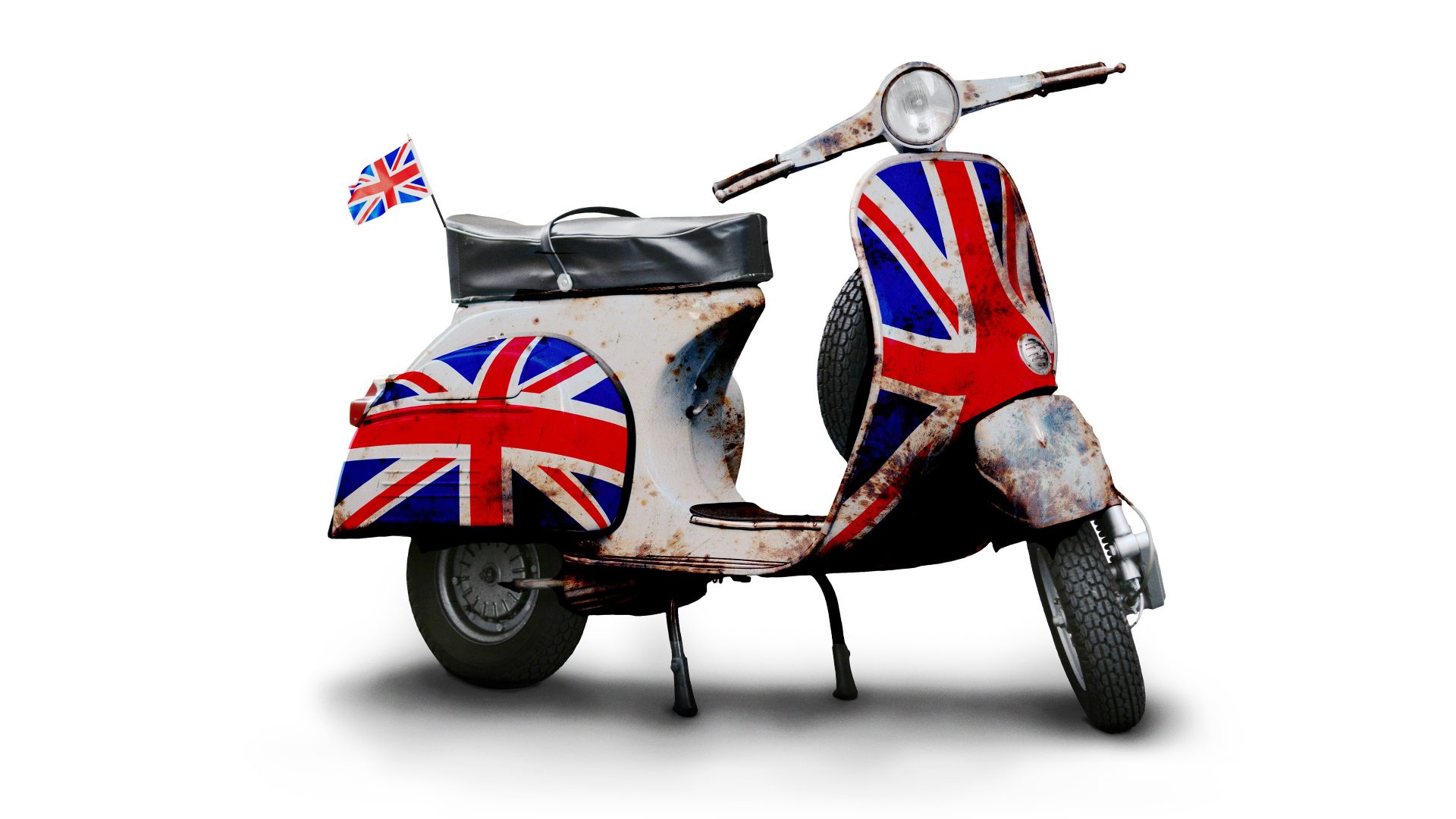Quick quiz: Which dog breed do Germans love most? Jawohl, it is the Deutscher Schäferhund.
I assume you guessed right because, in movies, the dog alongside any German nearly always is a German shepherd. Admittedly, as the German in movies nearly always wears a Nazi uniform, equipping him with a sausage dog would be counterproductive.
In real life though, our canine affection is also shared with the Dackel, also called Dachshund and Teckel (in hunter lingo); the second-most popular dog, according to the German dog federation VDH.
One senior Dackel recently gained notoriety, however: a 14½-year-old shorthaired called Gustav made the front page of the best-selling Bild newspaper, with his photo captioned “Dackel Gustav (14) produced the assault weapon”.
In his defence, Gustav was involuntarily weaponised by his owner: the internationally renowned, award-winning choreographer Marco Goecke, since last week the ex-ballet chief of the Hanover State Opera.
His crime: rubbing a bag full of poor Gustav’s poo on to a critic’s right cheek, in the opera’s foyer, to the disgust of bystanders and most of all the victim, Wiebke Hüster, dance critic for Frankfurter Allgemeine Zeitung.
She screamed, horror-struck, then washed and filed a police complaint, while Goecke went on to watch the premier (title: Faith, Love, Hope), bathed in the applause on stage and threw kisses to the audience (better not ask if he had washed his hands).
Contrary to some reports, he still has not apo(o)logised to the victim for his excremental attack, at least not in a credible manner.
When people criticised him on Instagram, he first called them Nazis. Later, his management released a statement (“apologises sincerely for the unacceptable attack”), but in a truly sincere TV interview on NDR Goecke proved to have a stunning talent for the art of victim-blaming.
Filmed on a park bench, Dackel Gustav at his feet, he justified his “overreaction” by moaning about “nasty reviews” by Hüster, claiming she had “thrown shit at him for years”.
“I don’t think any hard-working person would put up with that for long,” he said, adding: “If I’d been a woman and the critic a man, this would be seen differently.” Her words, he complained, had violated him.
His version is, in fact, the legend of sensitive-artist-stalked-by-ruthless-critic. In truth, artist and critic met only once – on dog-poo day. While Goecke has produced more than 70 ballet works, Hüster has only reviewed nine of them, since 2006! Two of her reviews, from 2021, were “overwhelmingly positive”, says FAZ.
Even her piece calling his latest choreography “unfocused and disjointed, leaving the audience alternately insane and killed by boredom” does mention “minutes of genius”.
So should we just write this attack off as an obvious case of “if you can’t stand the criticism, don’t go on the stage”? I’m afraid there’s more to it.
Only last year, Karin Beier, director of Hamburg’s Schauspielhaus, called theatre criticism “shit on art’s sleeve”. And even after the faeces had moved from the symbolic sleeve to the literal face of a critic, Hanover State Opera’s director, Laura Berman, insisted we should ask how to protect artists from criticism. Not critics from dog poo.
In case you think today’s critiques are harsher than 100 years ago, just look at the legendary Alfred Kerr and his scathing reviews of Berlin’s theatre during the Weimar Republic: “When I checked my watch at 10 o’clock it was only half past eight.” That’s a milder quote…
If anything, there are fewer critics around today, with a smaller readership. And, apparently, a more easily offended art scene in Germany’s 140+ state theatres, operas and concert halls – which, by the way, are among the most highly subsidised cultural institutions in the world: many taxpayers never buy tickets, but €4-5bn (£3.5-4.4bn) of their taxes is spent to keep them going.
Taxpayers have also been funding the Cologne opera’s never-ending renovation since 2012, with costs climbing from €253m to €571m (so far). And the makeover of Berlin Staatsoper, which took four years longer than planned (costs rose from €212m to €391m). Hamburg’s Elbphilharmonie, which took six years longer than scheduled, was 11 times over budget, finally coming in at €866m.
So if a subsidised ballet director – whose choreographies will remain on stage and earn him money – has issues with journalists’ legitimate scrutiny, he should think about a career change. Dog sitting, maybe.
There’s so much to learn from the Dackel: intelligence, loyalty, courage, tenderness and how not to be easily offended.




